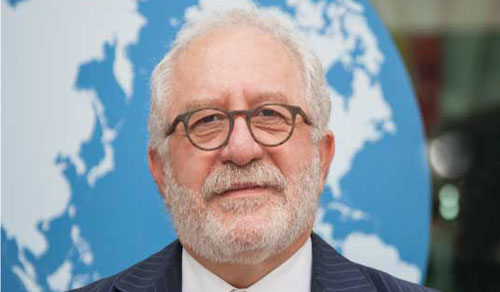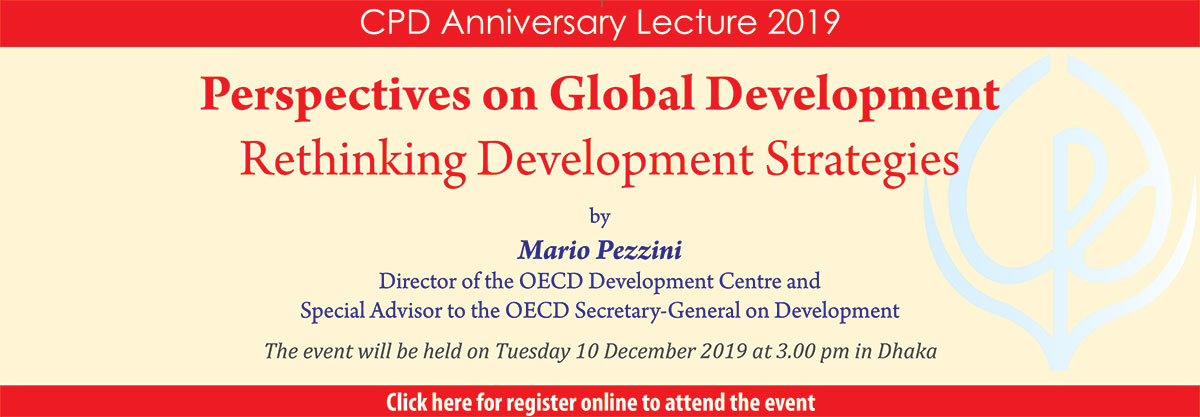Registration: https://bit.ly/2sAYyfp
 Dr Mario Pezzini is Director of the OECD Development Centre, Paris.
Dr Mario Pezzini is Director of the OECD Development Centre, Paris.
He joined the Centre in 2010, and after his service as Acting Director of the OECD Development Co-operation Directorate for a year, he has been nominated Special Advisor to the OECD Secretary General on Development.
Before joining the Development Centre, Dr Pezzini held several senior management positions in the OECD, where he has been working since 1995.
Prior to joining the OECD, Dr Pezzini was Professor in Industrial Economics at the Ecole Nationale Supérieure des Mines de Paris, as well as in US and Italian universities. Also, Dr Pezzini served as an Advisor in the field of economic development, industrial organisation and regional economics in international organisations and think tanks (e.g. ILO, UNIDO, European Commission and Nomisma in Italy). Dr Pezzini started his career in the Government office of the Emilia-Romagna Region, Italy.
2.30 pm – 3.00 pm: Welcome Tea/Coffee
3.00 pm – 3.05 pm: Welcome remarks by the Executive Director, CPD
3.05 pm – 3.10 pm: Introduction of the Speaker by Professor Mustafizur Rahman, Distinguished Fellow, CPD
3.10 pm – 3.55 pm: Anniversary Lecture by Dr Mario Pezzini
3.55 pm – 4.30 pm: Floor interventions
4.30 pm – 4.40 pm: Closing observations by the Chair
4.40 pm: Refreshments
Burgeoning cases of social unrest across developing countries today are all driven by a common factor: a call for change. Increased expectations as a result of a global rise in middle-classes are at the core of recent episodes of social unrest. By working together, and using the right tools, countries and the international community can respond to people’s demands. First, at the national level, countries can forge a path to sustainable development through effective development planning and strategies that adequately take into account local needs, and build upon new national capacities. To this end, it is crucial for goverments to equip themselves to understand how people perceive their lives and well-being. Second, at the international level, countries can adopt practices that have a people-centered approach and contribute to building an international system where countries can co-operate on an equal footing by adopting a set of innovative international co-operation tools that focus above all on people’s well-being. The call is for countries to leverage multilateralism to address this need for change.



